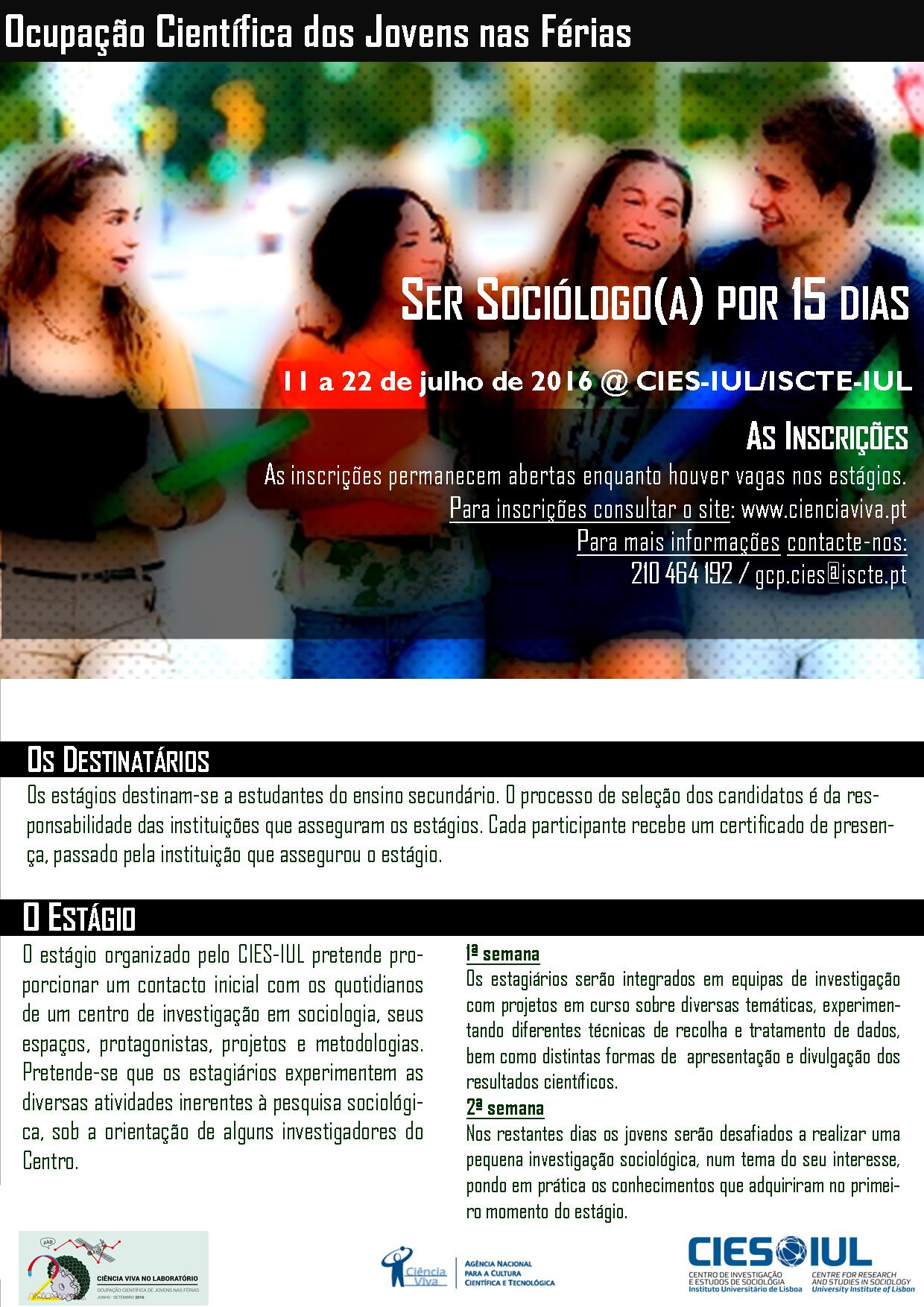 |
To be a Sociologist for 15 days.
Summary of activities
Reception of Participants
A Sociology research centre? Brief presentation. Introduction to activities to follow.
Peddy Paper and Focus Group with Researchers!
By the Office for Communication and Planning
Interview
Researchers: Mara Clemente e Anne Schippling
Interview is a data collection technique used in many contexts, the journalistic, the historical, the selective (as in a job interview), the sociological, etc. In social research, the interview is one of the many tools available to empirically ground the study of a problem. This activity presents the “qualitative interview” in sociology. In particular, after a presentation of the theoretical and basic technical aspects, the participants will be involved in the creation of scripts, in the preparation and managing of interview situations. Concrete experiences of interviews and an analysis of the theoretical and practical challenges which might characterize the interview meeting will be shared.
Ethnography
Researchers: Inês Pereira e Rui Telmo Gomes
How to observe the social? What is “participant observation”? How to relate and analyse that which was observed? After the presentation of ethnography as a qualitative methodology for the realization of research in the field, a “field” will be chosen where we will observe quotidian social situations, some more obvious and other more surprising. A discussion on the different forms of observing and relating will close out the day dedicated to ethnography.
Questionnaire
Researchers: Alexandre Calado e Pedro Estêvão
Our day will be dedicated to the science of questioning. We will do two activities. In the morning, we will dissect an inquiry through questionnaire, trying to understand what a sociologist aims for with his questions and which are the techniques which he resorts to in order to reach his answers. In the afternoon we will build a small questionnaire together, formulating a sociological question from the interests of the participants, discussing the formulation of pertinent questions and anticipating possible answers.
Data Analysis
Researchers: Augusta Correia e Jorge Vieira
The analysis of quantitative data has been gaining more and more relevance in the study of social phenomena. The increasing quantity of available data, through the use of the internet (eg. Social networks, governmental institutes, international organizations) allows us to have access to a collection of fundamental information to better understand the reality of social phenomena. So, in this activity, we will have the opportunity to talk about some of the sources for quantitative data information. We will also examine some data analysis techniques highlighting the most common mistakes in their interpretation. The activity will end with some forms of presentation of the results attained during the analysis.
Development of a research (team work)
Researchers: Inês Pereira e Pedro Abrantes
In the second week of activities, the young people will live the experience of being a researcher. Integrated into a research team, they will have the opportunity to develop a sociological research project, defining the theme and the object of study, choosing the most suitable methodology and research techniques, collecting and analysing data. In the end, the results will be presents in a public session, open to the whole scientific community of CIES-IUL
Public presentation of the research results.




